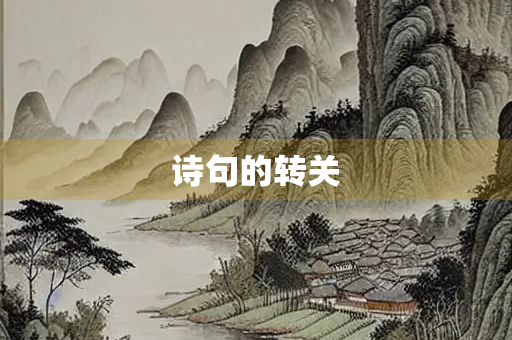
Introduction
Poetry is an art form that has been cherished for centuries. It is a written or spoken expression of emotions,
ideas, and experiences, often characterized by meter, rhyme, and figurative language. Poems are composed of stanzas, which are a group of lines forming the basic recurring unit of a poem. Within these stanzas, poets create beautiful phrases and lines that are often referred to as "poetic gems" or "poetic pearls." These are the words that stand out and have the power to move, inspire, and even transform the reader. However, the beauty of poetry lies not only in the individual lines but also in how they relate to each other in what is called the "turn" or "volta." This is when the poem shifts direction or t
One, creating a new perspective or emphasis. In this article, we will delve into the concept of "turns" in poetry, also known as "poetic turns."
What are poetic turns?
Poetic turns, also called "volta," "argument," or "pivot," refer to the shift in the speakers attitude, viewpoint, or theme within a poem. These shifts mark a significant change, often answering a question that the first part of the poem posed or making a surprising or unexpected conclusion. Poetic turns can happen at various points in the poem, though they often occur around the middle of the piece or at the end. The turn can also take on different forms, such as a change in tone, point of view, imagery, or metaphorical language.
The types of poetic turns
There are several types of poetic turns that poets employ to add depth and resonance to their work. Some of the most well-known ones include:
Shift in syntax
This type of turn involves a change in the order or structure of the sentence, creating a shift in emphasis or meaning. For ex
ample, Elizabeth Bishops poem, "One Art," uses this turn to convey the speakers sense of loss: "The art of losing isnt hard to master; so many things seem filled with the intent / to be lost that their loss is no disaster."
Change in imagery
Imagery plays a significant role in poetry, as it allows the reader to visualize and experience the emotions and ideas expressed. A change in imagery can heighten the poems impact and reveal new insights into the speakers emotions. For example, Mary Olivers poem, "Wild Geese," uses a shift in imagery to illustrate the importance of self-acceptance and belonging: "You do not have to be good. / You do not have to walk on your knees / For a hundred miles through the desert, repenting."
Movement from general to specific
This turn involves a shift in focus from a broad idea or theme to particular details, creating a greater sense of intimacy and specificity. For example, William Wordsworths poem, "I Wandered Lonely as a Cloud," uses this turn to emphasize the beauty of a specific moment in nature: "Continuous as the stars that shine / And twinkle on the Milky Way, / They stretched in never-ending line / Along the margin of a bay."
Contradiction or Paradox
This turn involves the use of a contradiction or paradox to create tension and complexity in a poem. For example, in John Donnes poem, "A Valediction: Forbidding Mourning," he explores the idea of separation and love, using the paradox of a compass as a metaphor for the lovers connection.
The importance of poetic turns
The use of poetic turns adds texture and depth to a poem, enriching the readers experience and engagement. Poets often use them to create tension, surprise, or emphasize an idea, often changing the readers opinion or understanding of the poem. Poetic turns are more than just stylistic devices; they are essential to creating meaning and resonance in poetry, making the poem more memorable and impactful.
Conclusion
Poetry is a rich, varied art form, with much to explore and discover. Poetic turns are one of the many tools that poets use to create meaning and depth in their work. By understanding and appreciating these turns, readers can gain a deeper appreciation and understanding of the art form, and poets can better craft their work, creating pieces that resonate with readers for generations to come.

